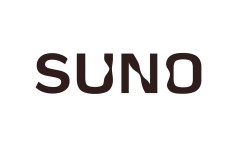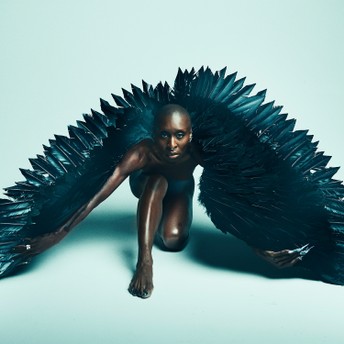Suno Creates an Entire Spotify Catalog’s Worth of Music Every Two Weeks, Says Investor Pitch Deck for $250M Fundraise
Written by djfrosty on November 24, 2025
Trending on Billboard
Every two weeks, users on the AI music platform Suno create as much music as what is currently available on Spotify, according to Suno investor presentation materials obtained by Billboard. Those users are primarily male, aged 25-34, and spend an average of 20 minutes creating the some 7 million songs produced on the platform daily, according to the documents and additional sources.
Suno sees a future where, as it expands its offerings, creators and listeners will not need to leave the app to create, stream or share their music socially. The goal is listed as creating “high-value, high-intent music discovery” and “artist-fan interaction.”
Now, Suno might have the money to fulfill that ambitious vision. Suno announced last week that it had raised $250 million in a C fundraise, led by Menlo Ventures, with additional investors including NVIDIA’s venture capital arm NVentures and Hallwood Media. The round brings Suno’s valuation up to $2.45 billion.
“In just two years, we’ve seen millions of people make their ideas a reality through Suno, from first-time creators to top songwriters and producers integrating the tool into their daily workflows,” Suno CEO Mikey Shulman said in a statement about the company’s new influx of cash. “This funding allows us to keep expanding what’s possible, empowering more artists to experiment, collaborate and build on their creativity. We’re proud to be at the forefront of this historic moment for music.”
The investment materials, obtained by Billboard, provide more insight into the company’s aspirations for what Shulman calls the “future of music” which he is “seeing … take shape in real time.” In the materials, Suno claims that by 2028 the company will grow to $1 billion in revenue, and “this is before we consider monetizing consumption.” Eventually, the company says, the Suno of “tomorrow … will power the new, bigger music ecosystem and will be a $500 billion company.” Reps for Suno did not respond to multiple requests for comment.
According to the pitch deck, this funding round will be allocated to the following uses: 30% computing power, 20% mergers and acquisitions, 20% discovery, 20% marketing, 15% data and 5% partnerships. Already, the company has shown an interest in growing and expanding its offerings via acquisition, having purchased digital audio workstation WavTool in June 2025.
Notably, compute power — the hardware, processors, memory, storage and energy that operate data centers — is the company’s biggest expense since Jan. 2024, which is a common situation for many AI companies. “Amid the AI boom, compute power is emerging as one of this decade’s most critical resources … there is an unquenchable need for more,” a McKinsey study said about the cost of compute in the age of AI.
OpenAI’s AI video and social platform, Sora, for example, especially struggles against high compute costs due to the complexities of generating video. According to an estimate by Forbes, Sora costs the company as much as $15 million per day to run. According to Suno’s financials, reviewed by Billboard, Suno has spent over $32 million on training its model since January 2024. That breaks down to $32 million spent on compute power and $2,000 spent on data costs — meaning the cost of content, like music, which it uses to train its model.
Suno is currently in the middle of a number of lawsuits concerning the data on which it trains its model. This includes two class action copyright infringement lawsuits, filed by indie musician groups; one lawsuit from Danish rights group Koda; and one from German collection society GEMA. Most significantly, however, is the copyright infringement lawsuit filed by the three major music companies, Sony, Universal and Warner, against Suno for $500 million, claiming widespread copyright infringement of their sound recordings “at an almost unimaginable scale” to train its model.
In recent months, there have been reports that Suno — and Udio, which was also sued in a near-identical lawsuit by the majors — has been in licensing and settlement talks with the majors. At least part of that reporting proved to be true: recently, Udio settled with both Universal and Warner and created a license structure for their recorded music and publishing interests. (Sony’s lawsuit against the company is still ongoing). Now, to work with the music companies, Udio is pivoting its service to become more of a fan engagement platform where users can play with participating songs in a “walled garden,” meaning users cannot download and post the creations on streaming services.
Suno’s pitch deck does not say anything about its lawsuits with copyright holders. It also does not discuss any plan for licensing musical content.
Suno sold investors on its vision to create a service where you can “create, listen and inspire” on the platform, “turn[ing] music from passive consumption into an active participatory culture.” To expand this vision, Suno plans to roll out more products like a voice beautification filter and a social media service. It also touts that its work has cultural power outside of consumption on its own service, including a photo of cover art from viral AI band The Velvet Sundown next to the text, “Suno songs go viral off platform.”
The deck shows an image of a user playing guitar in a TikTok-like vertical social media video. In the top right corner, above typical social media buttons (“Like” “comment” and share”) is a button that says “Create Hook,” implying that users will connect through iterating and remixing each other’s creations in a video, social-forward way.
The company’s vision for the future, however, hinges on customer acquisition and reducing the number of users who leave the service after joining. According to the deck, Suno says it has 1 million subscribers already, up 300% year over year, and it currently says approximately 25% of subscribers remain after 30 days. On a weekly basis, Suno says it has 78% retention for subscribers and 39% weekly retention for all users.
Suno’s investment materials say that one positive indicator is that the company is “reactivating” an increasing number of users, meaning these users came back after one month. As of July 2025, Suno claims 350,000 reactivated users per week. The company attributes this to things like new features, increased awareness and improvements in their model.
Additional reporting by Elizabeth Dilts Marshall.

 State Champ Radio
State Champ Radio 








